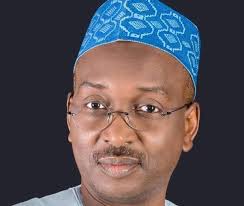Salihu Lukman, former national vice chairman of the All Progressives Congress (APC) for the North-west region, has urged prominent Nigerian political figures to unite in a bid to challenge President Bola Tinubu and the APC in the 2027 elections.

In a recent statement titled “Future of Democracy in Nigeria,” Lukman appealed to former Vice President Atiku Abubakar, former Governors Peter Obi, Rabiu Musa Kwankwaso, Rotimi Amaechi, and others to set aside personal ambitions and form a united front. He also extended this call to notable APC figures such as former Vice President Yemi Osinbajo and former Governors Nasir El-Rufai, Rauf Aregbesola, Kayode Fayemi, and Ibikunle Amosun.
Lukman emphasized that building a coalition capable of moving Nigerian democracy forward requires selflessness from political leaders. He criticized the APC for failing to deliver on its promises to fight corruption, stating that the party has instead legitimized higher levels of corruption and perpetuated “state capture.”
“The APC, as the ruling party, has failed to provide the leadership necessary to combat corruption,” Lukman stated. “The situation today is graver than it was under the PDP in 2015.”
Lukman stressed the importance of gaining broad acceptance across all regions of Nigeria. He pointed out the longstanding rejection of the APC by the South-East since 2015 and suggested that any new political alliance should strive to be inclusive.
“Any new united political front should gain high acceptability in virtually all parts of the country,” Lukman asserted. He urged leaders like Atiku Abubakar and Peter Obi not to impose their presidential ambitions on the coalition, and called on other leaders with presidential aspirations to put aside their ambitions during the negotiation phase.
Highlighting the divisions within Nigerian politics, Lukman warned that the current lack of cooperation among political leaders is contributing to poor governance and undermining national unity. He urged political leaders to commit to forging a new atmosphere of political unity, based on selflessness, forgiveness, and national reconciliation.
“If APC and President Tinubu are to have any considerable electoral strength in 2027, it will be due to the current divisions in Nigerian politics,” he warned. “Absence of cooperation among political leaders is responsible for rising incidences of bad governance and eroding the basis of Nigerian nationhood.”
Lukman suggested that a united political platform could be achieved through various means, such as merging existing parties, forming a new party, or rebranding an existing one. He called on political leaders to rise to the occasion and create a united front that could transform Nigeria’s democracy and combat the phenomenon of “state capture.”
“Getting out of this mess will require strong political parties, which are lacking in contemporary Nigerian politics,” Lukman said. “The future of Nigerian democracy depends on the ability of political leaders to produce strong political parties.”
Lukman’s call to action emphasizes the need for a collective effort among Nigeria’s political leaders to address the country’s challenges and improve governance. As the 2027 elections approach, the formation of a united opposition could play a crucial role in shaping the future of Nigerian democracy.



